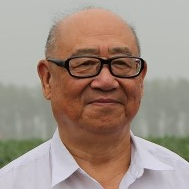
Journal Menu
► ▼ Journal Menu-
- Agriculture Home
- Aims & Scope
- Editorial Board
- Reviewer Board
- Topical Advisory Panel
- Instructions for Authors
- Special Issues
- Topics
- Sections
- Article Processing Charge
- Indexing & Archiving
- Editor’s Choice Articles
- Most Cited & Viewed
- Journal Statistics
- Journal History
- Journal Awards
- Conferences
- Editorial Office
Journal Browser
► ▼ Journal BrowserNeed Help?
Announcements
21 December 2021
Welcoming Prof. Dr. Jun-Yi Gai to the Editorial Board of Agriculture

Name: Prof. Dr. Jun-Yi Gai
Affiliation: College of Agriculture, Nanjing Agricultural University, Nanjing 210095, China
Interests: genetics and plant breeding; quantitative genetics; experimental statistics; germplasm population; cropping system; soybean science
Prof. Dr. Jun-Yi Gai, from the Nanjing University, is a professor of crop genetics and breeding, Director of the National Soybean Improvement Center, and academician of the Chinese Academy of Engineering. He is engaged in soybean genetic breeding and quantitative genetic research. So far, he has collected and studied 12,000 soybean landrace resources in southern China, revealed the genetic potential of the main economic traits of the population, and established 10 traits in terms of yield, disease and insect resistance, quality, and fertility, cooperatively established a soybean genetic map, marked and located 6 linked SMV resistance genes, completed a pedigree map and genetic basis analysis of Chinese soybean varieties, proposed the maturity group division method and variety ecological zoning of Chinese soybean varieties, and proposed a molecular genetics argument to support the origin of cultivated soybeans in wild populations in the south. He has also extended the polygene hypothesis of quantitative inheritance to the major gene + polygene mixed inheritance model and has achieved a breakthrough, from the sole study of the overall effect of multiple genes to the ability to identify 1–3 major gene effects and the overall effect of multiple genes at the same time. Finally, he has won 17 national, provincial, and ministerial awards and published more than 430 books.



